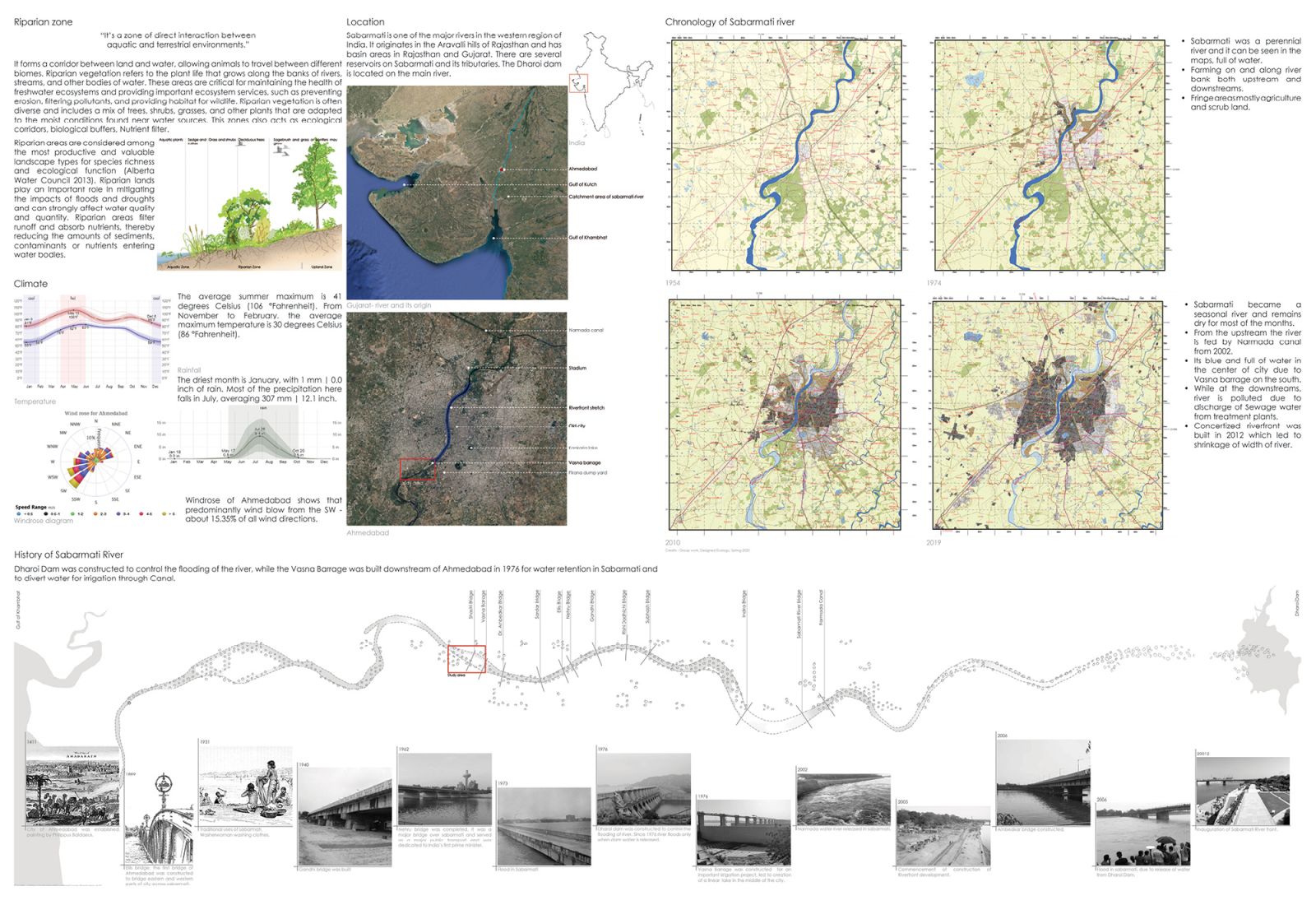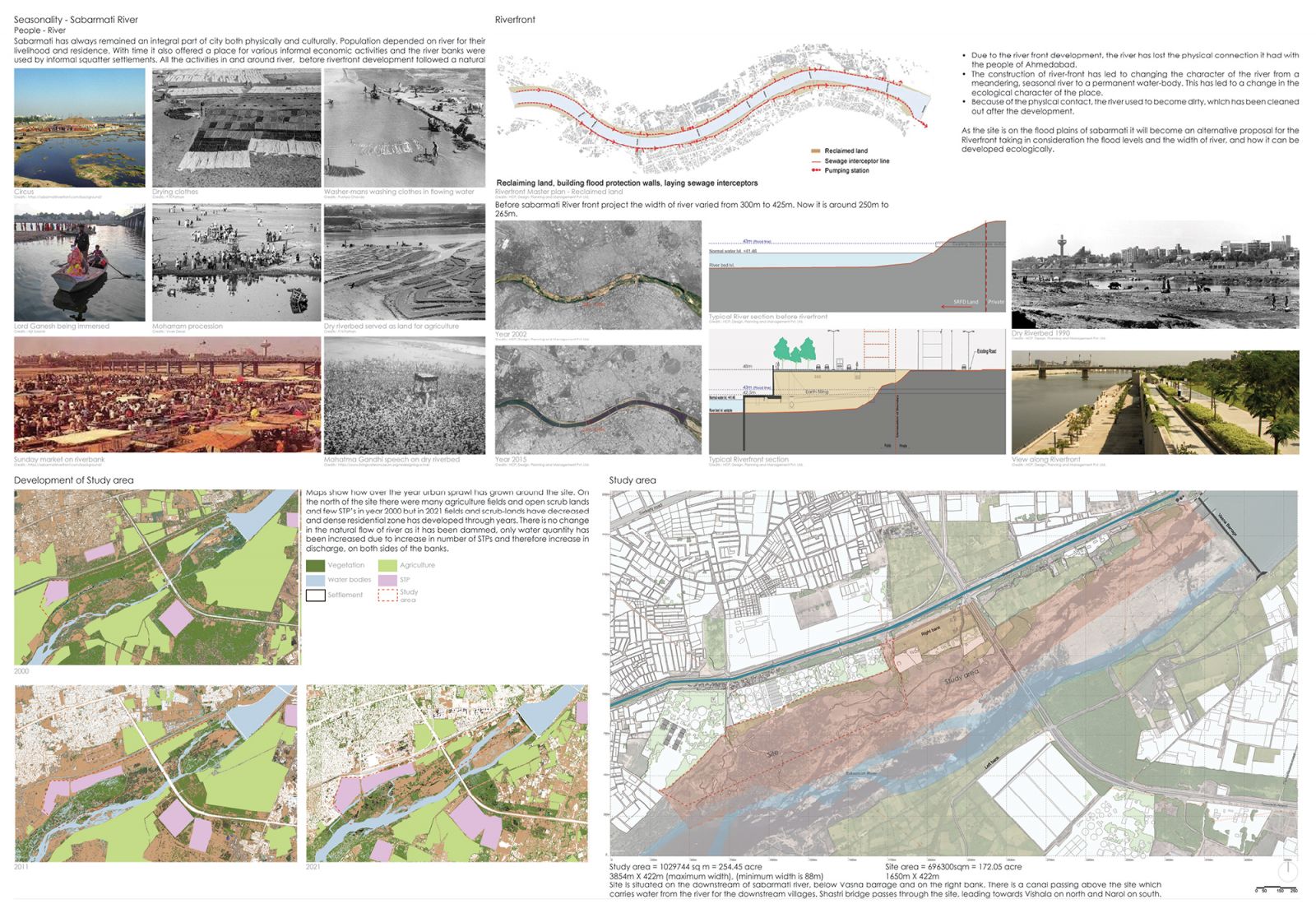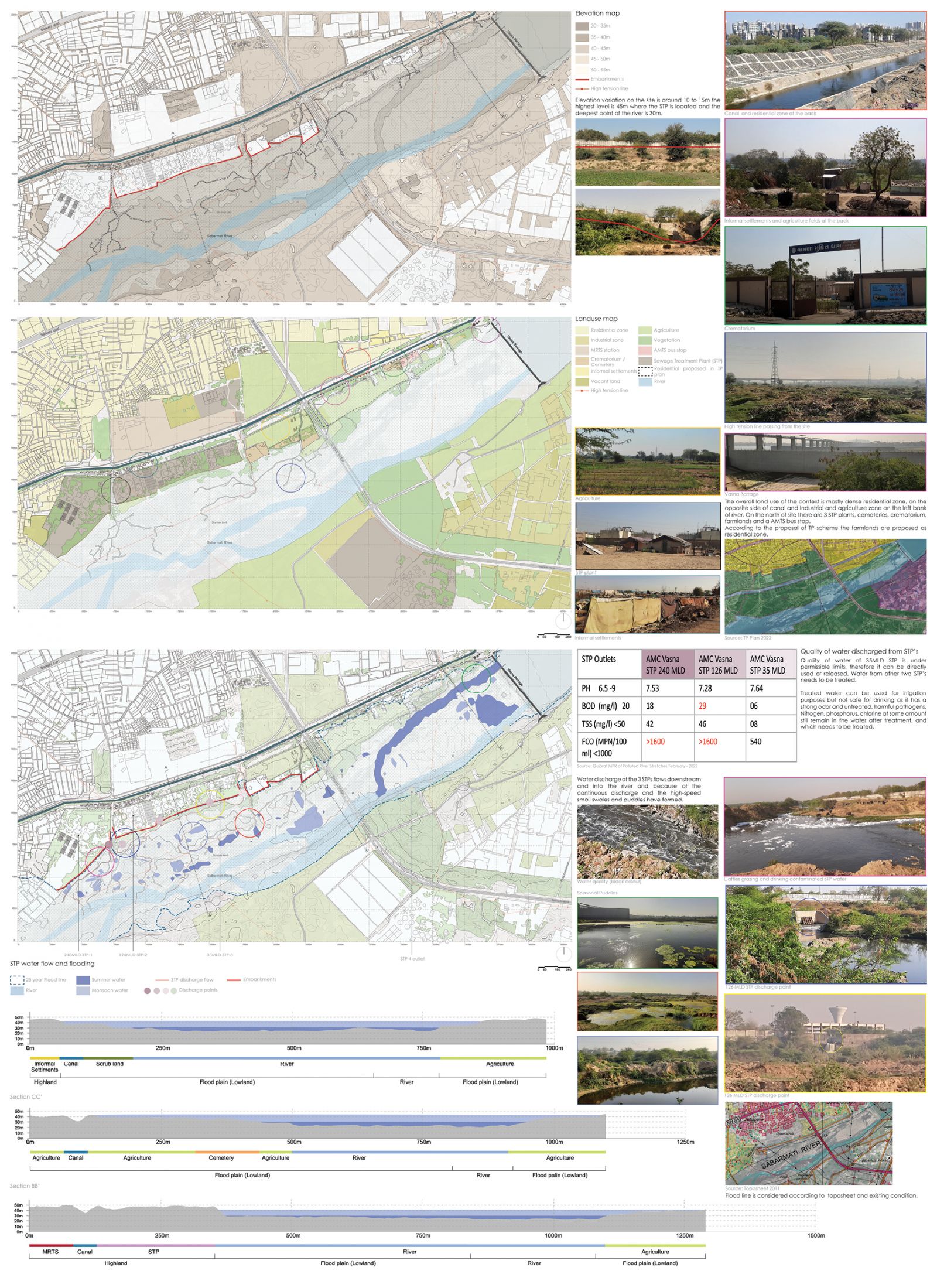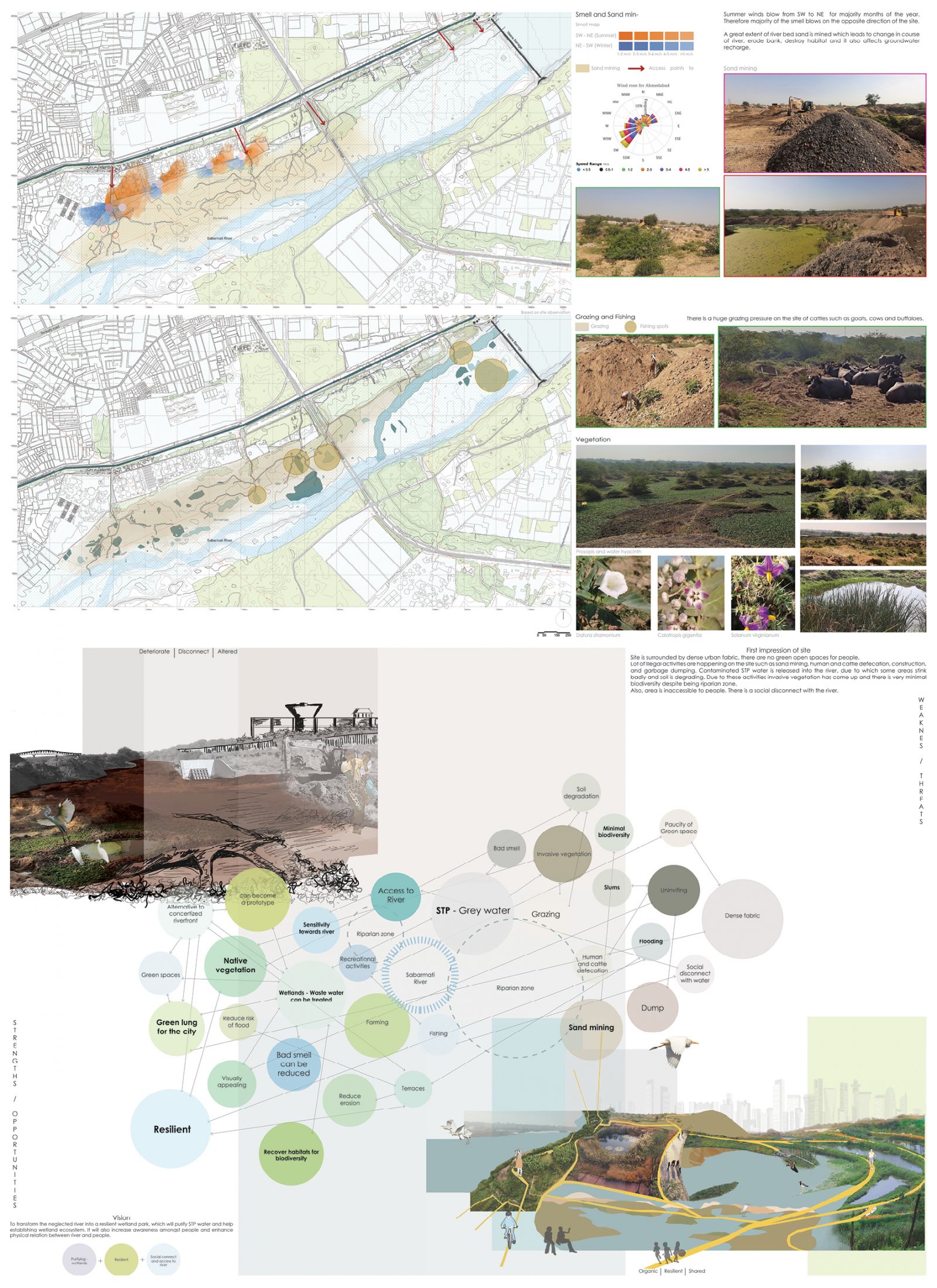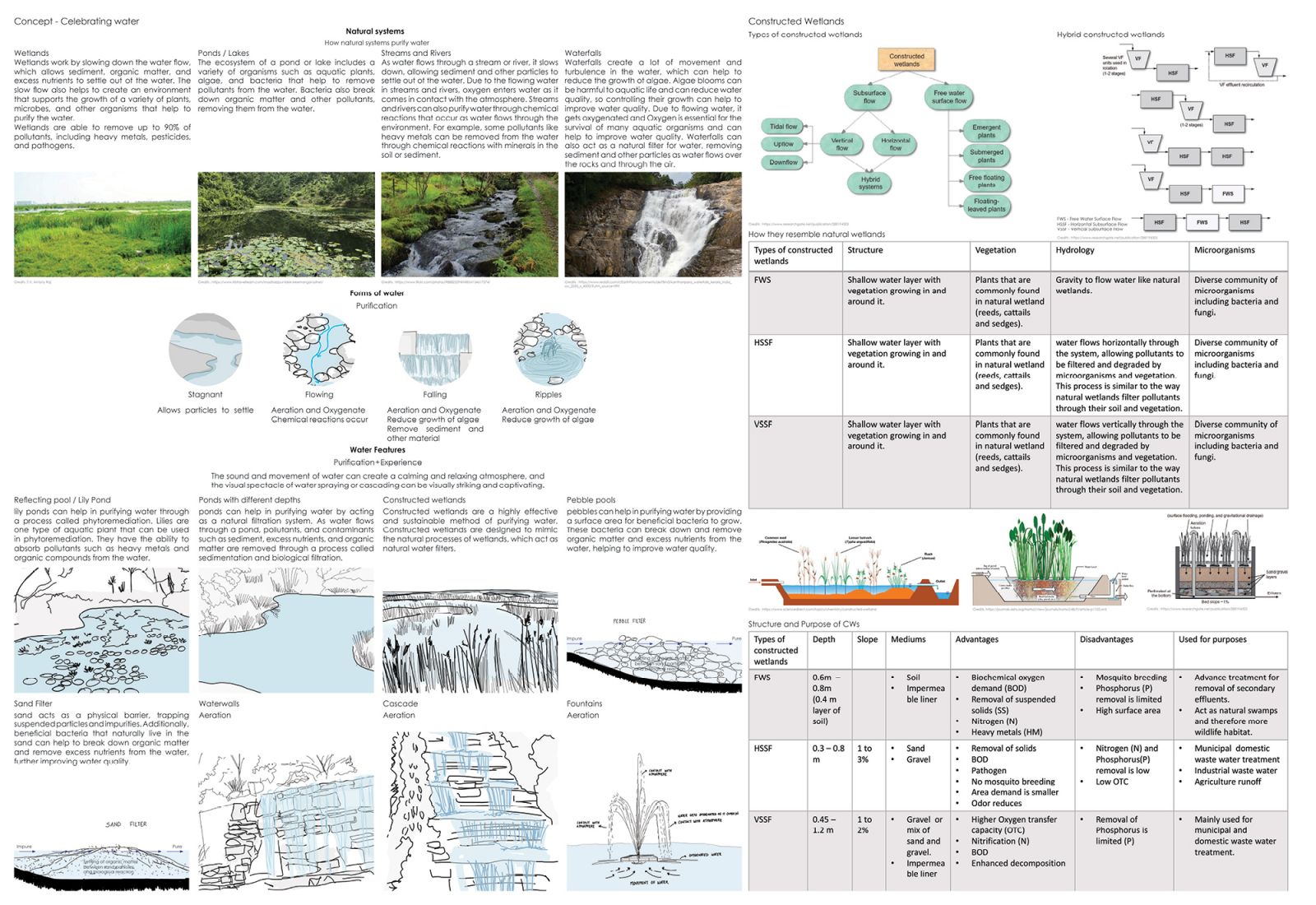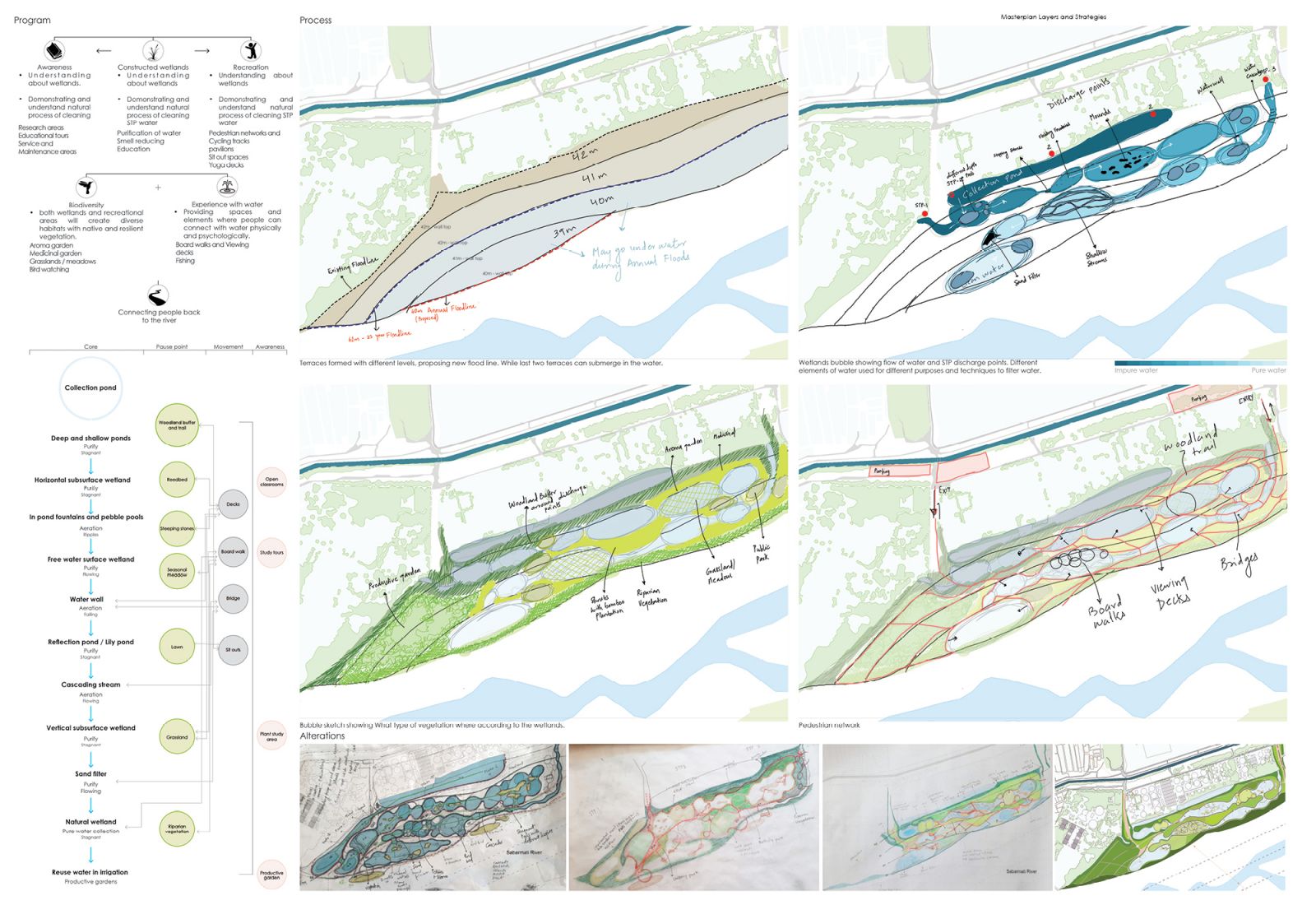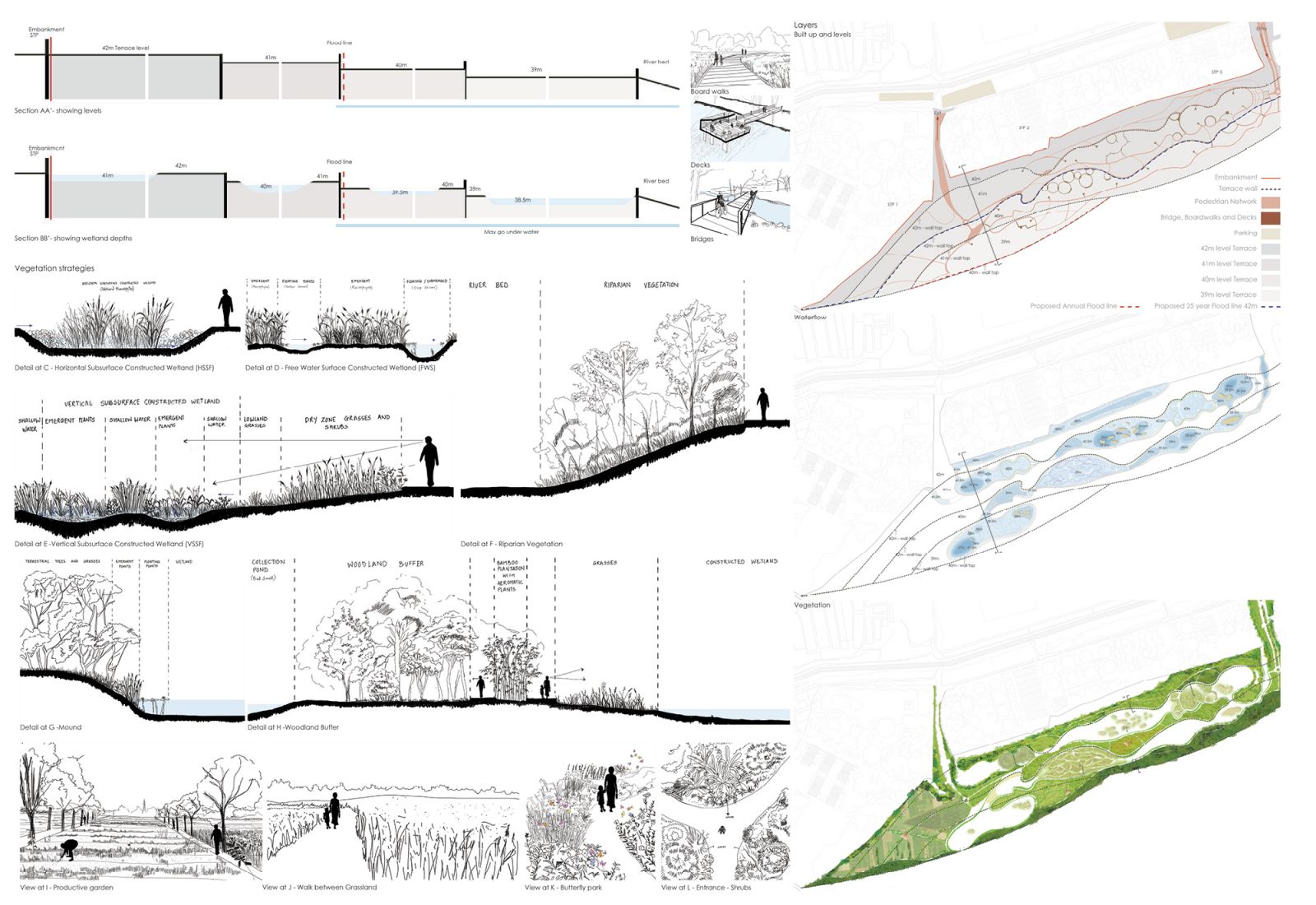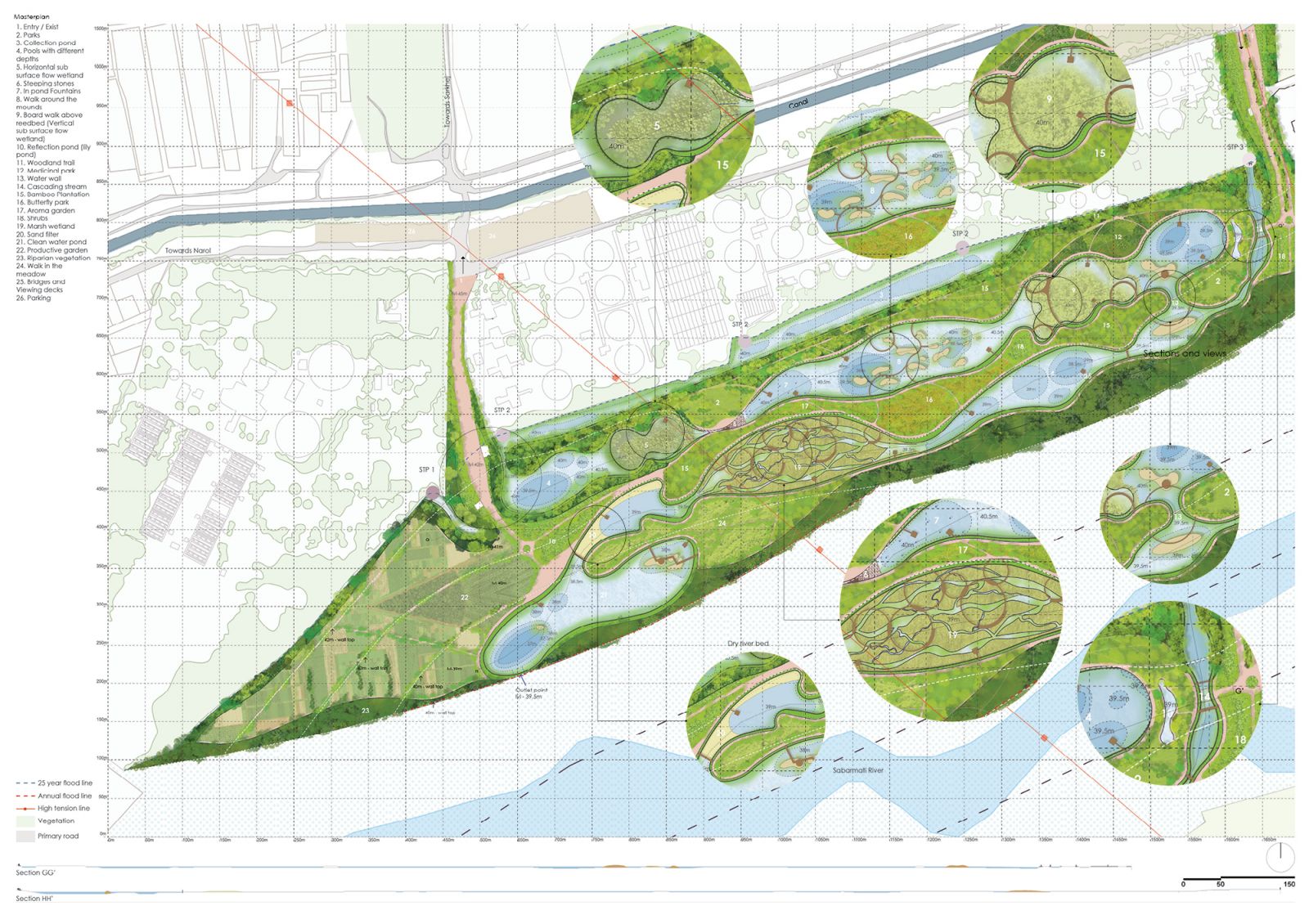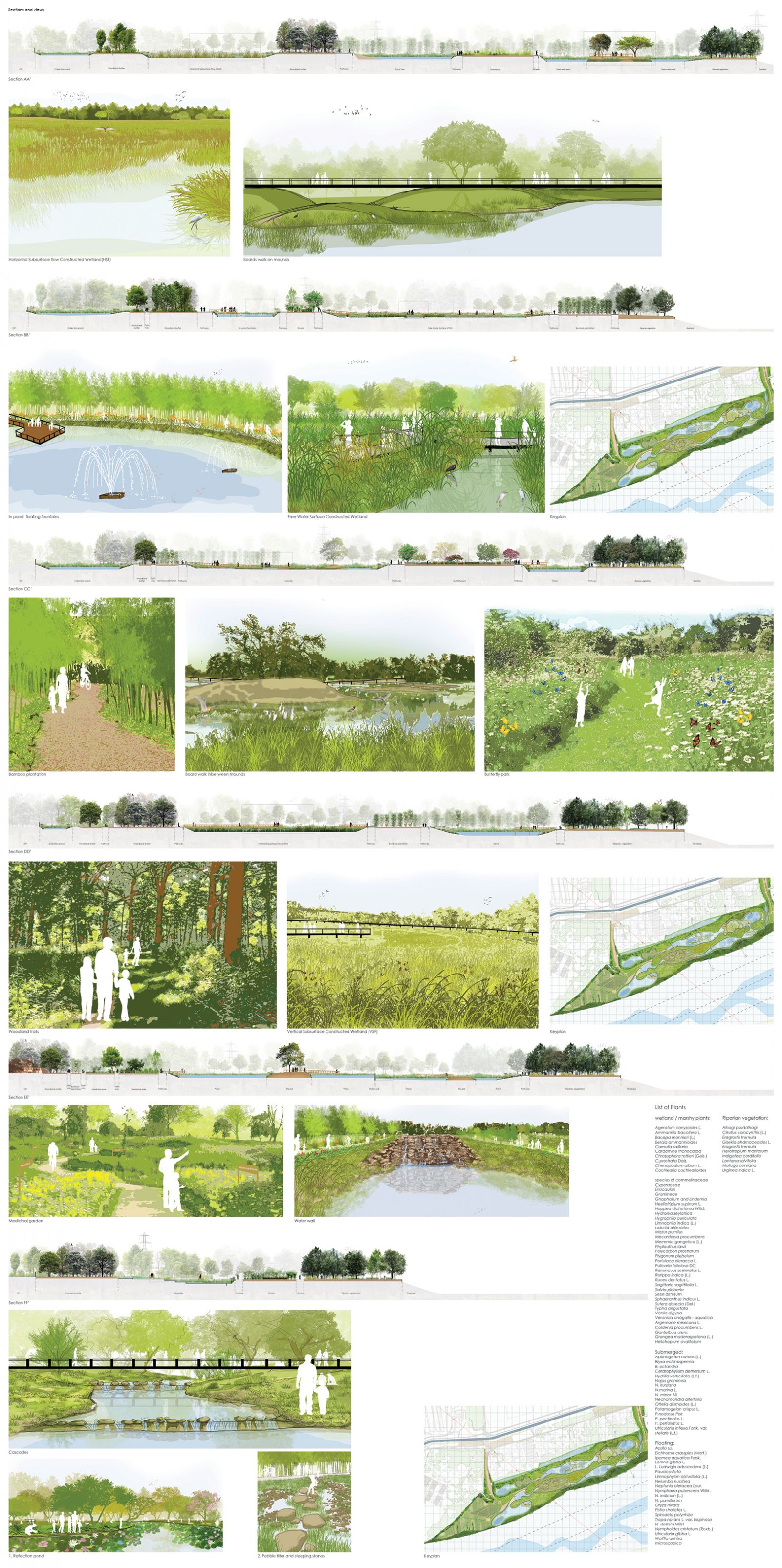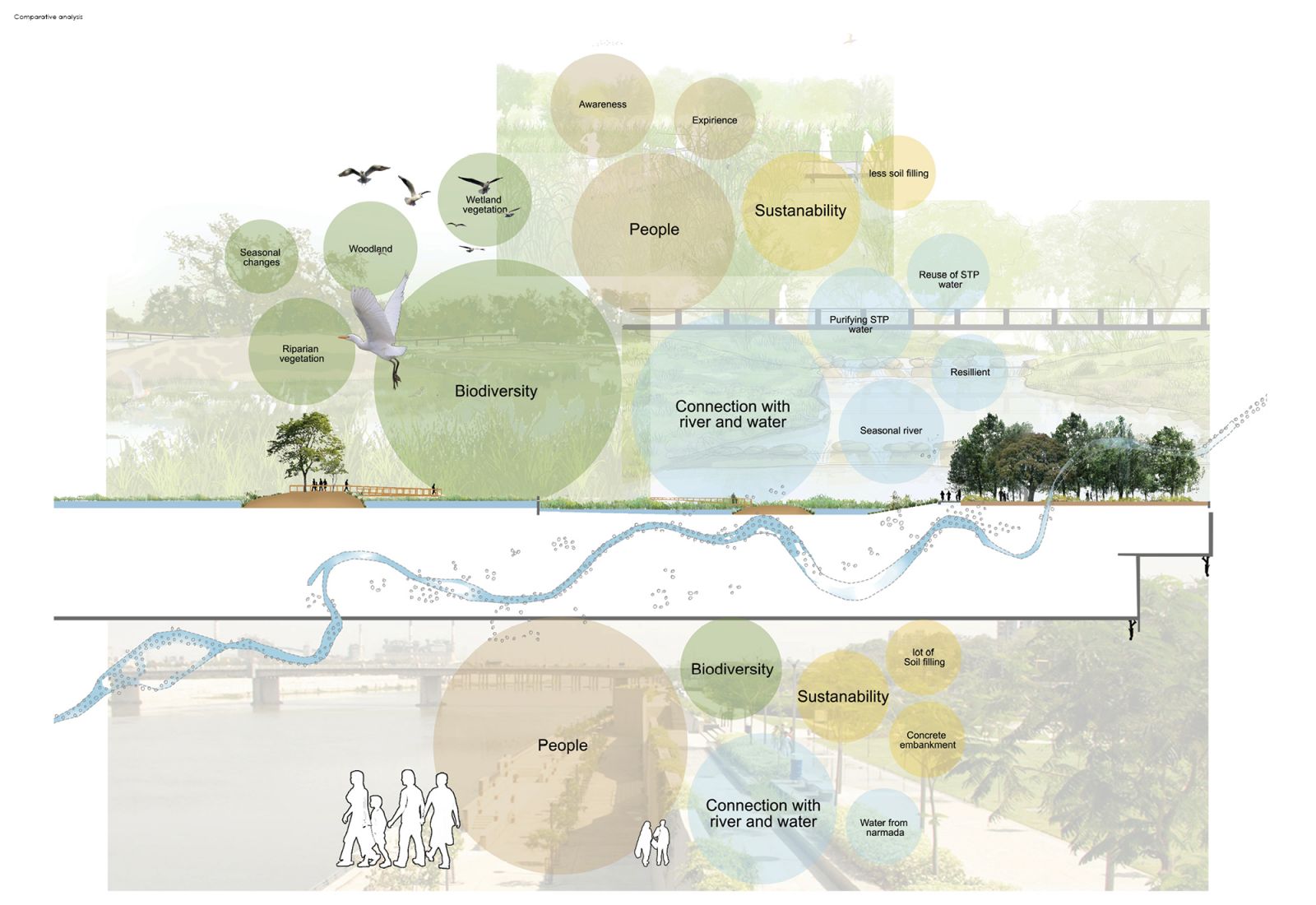- Student PAREKH JAIMINI PREMALKUMAR
- Code PLA22143
- Faculty Architecture
- Unit L4 Studio Unit
- Tutor/s Deepa Maheshwari
- TA Anmol Tewari
As the site is on riparian zone of Sabarmati River and it plays a very crucial role in maintaining the health of the river, so restoring those areas ecologically is very important as they are degrading because of various anthropogenic pressures. It also acts as a corridor between land and water it allows lot of animals to travel between different biomes. These areas are critical for maintaining health of fresh water ecosystems and provides lot of services such as erosion control, filtering pollutants and providing habitat. It can be an alternative way of developing the riverfront ecologically. The objective is to convert the neglected part river into a resilient wetland park that can effectively filter sewage treatment plant (STP) water while promoting the growth of a thriving wetland ecosystem. This initiative will not only boost public awareness but also foster a stronger connection between the community and the river. The core idea is to construct wetlands using forms of water such as flowing, stagnant, falling and ripples after understanding the natural systems and their ways of purifying water. Such as wetlands, lakes, ponds slow moving or stagnant water which helps supporting growth of variety of plants and microbes which help in removing heavy metals pesticides and pathogens while rivers and waterfalls has fast flowing or falling water which increases oxygen levels, removes organic matter, nutrients and sediments, reduces growth of algae. Different water elements mimicking different forms of water such as fountains, cascades, water walls, swales, lily ponds (reflection pond), ponds, constructed wetlands, sand filter and pebble filter are used which will not only purify water but also add a factor of experience of water as it is on the river edge. The sound and movement of water can create calming and relaxing atmosphere and the visual of water spraying or cascading can be striking and captivating. To create awareness and engage people there will be study tours relating to the purification of water and its reuse, plant study, Bird watching etc. Wetlands will not only purify water and increase the biodiversity in terms of flora and fauna but it will also celebrate water in different ways by allowing people to experience water as it is on the banks of river.
